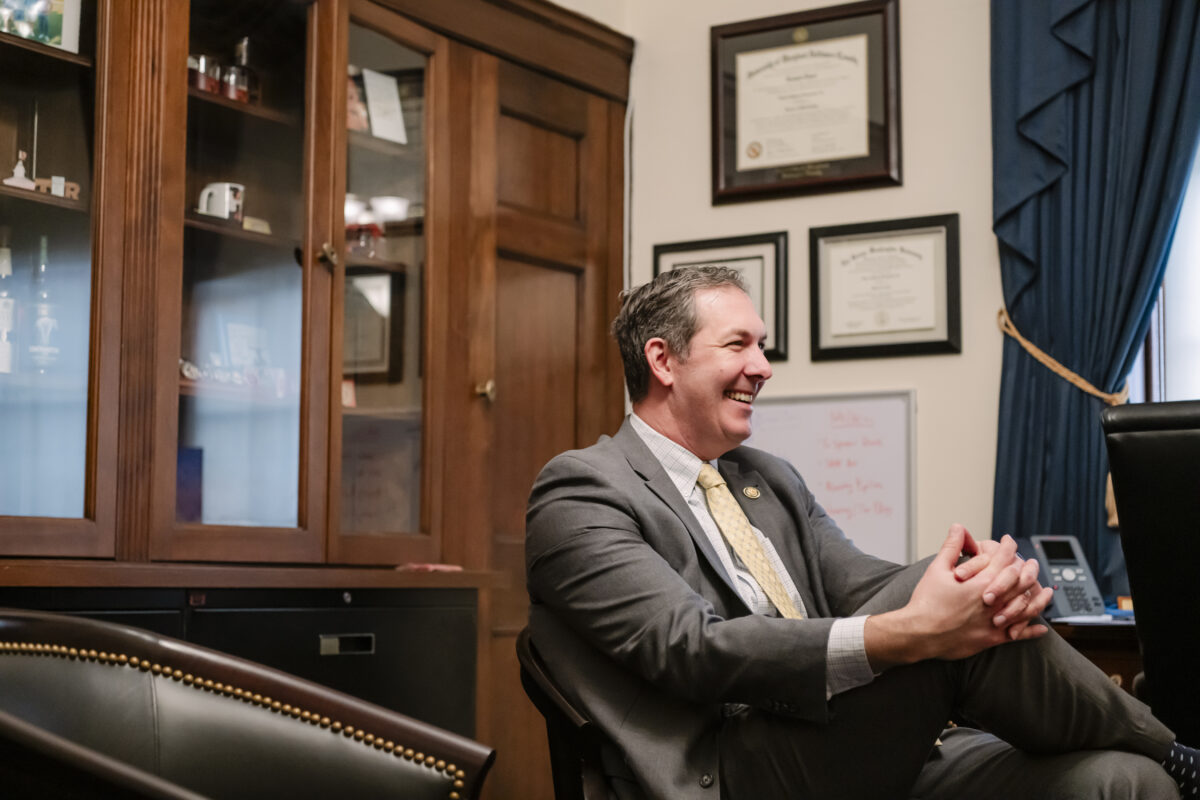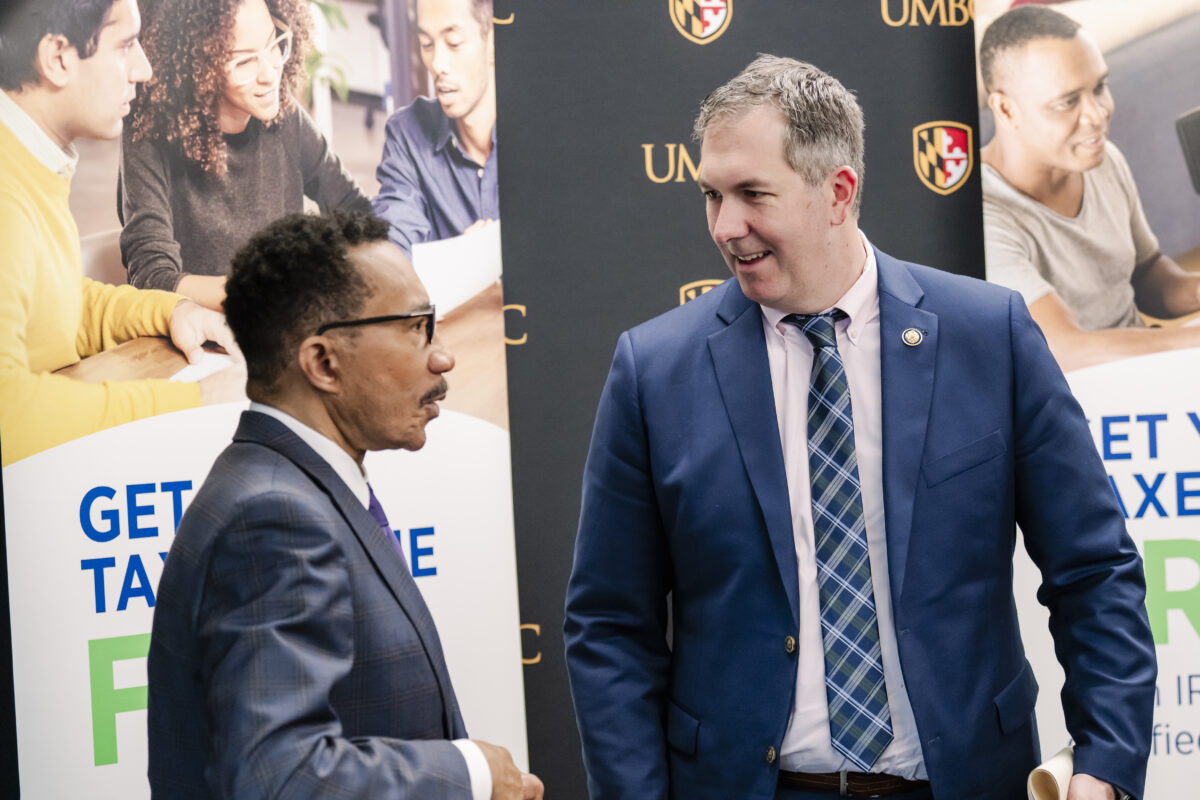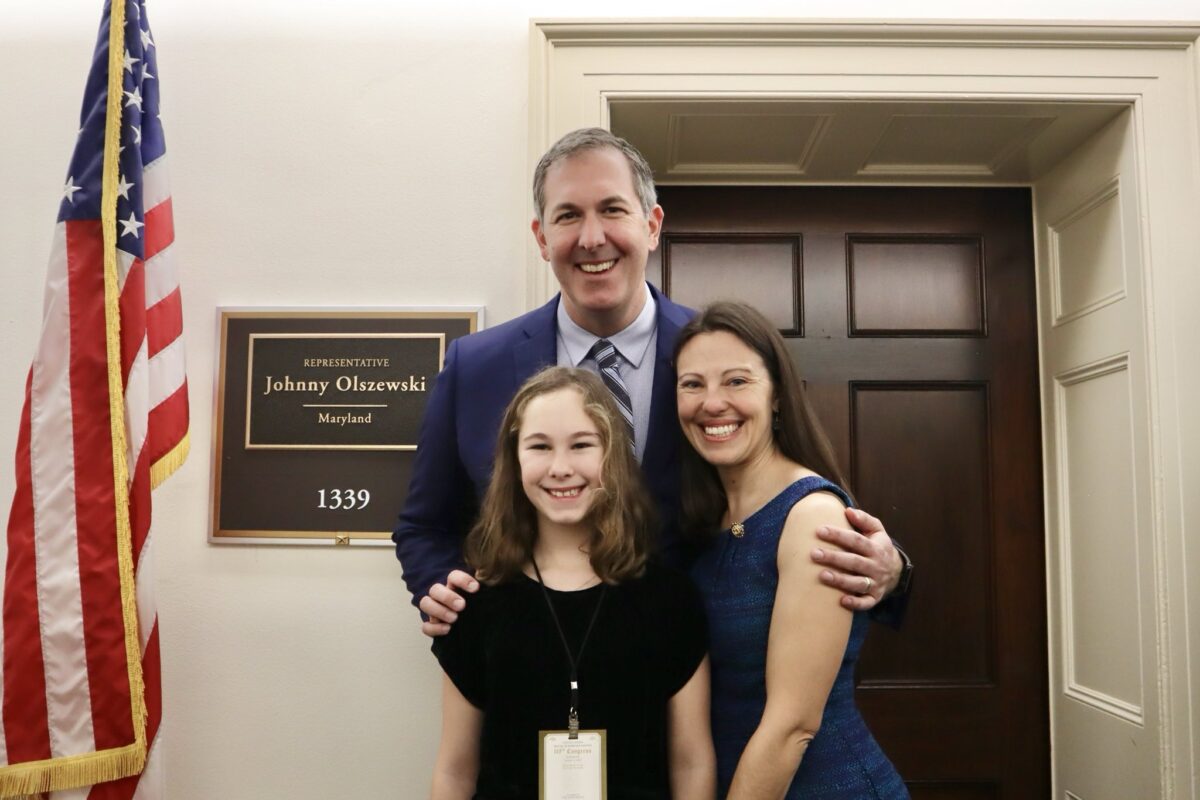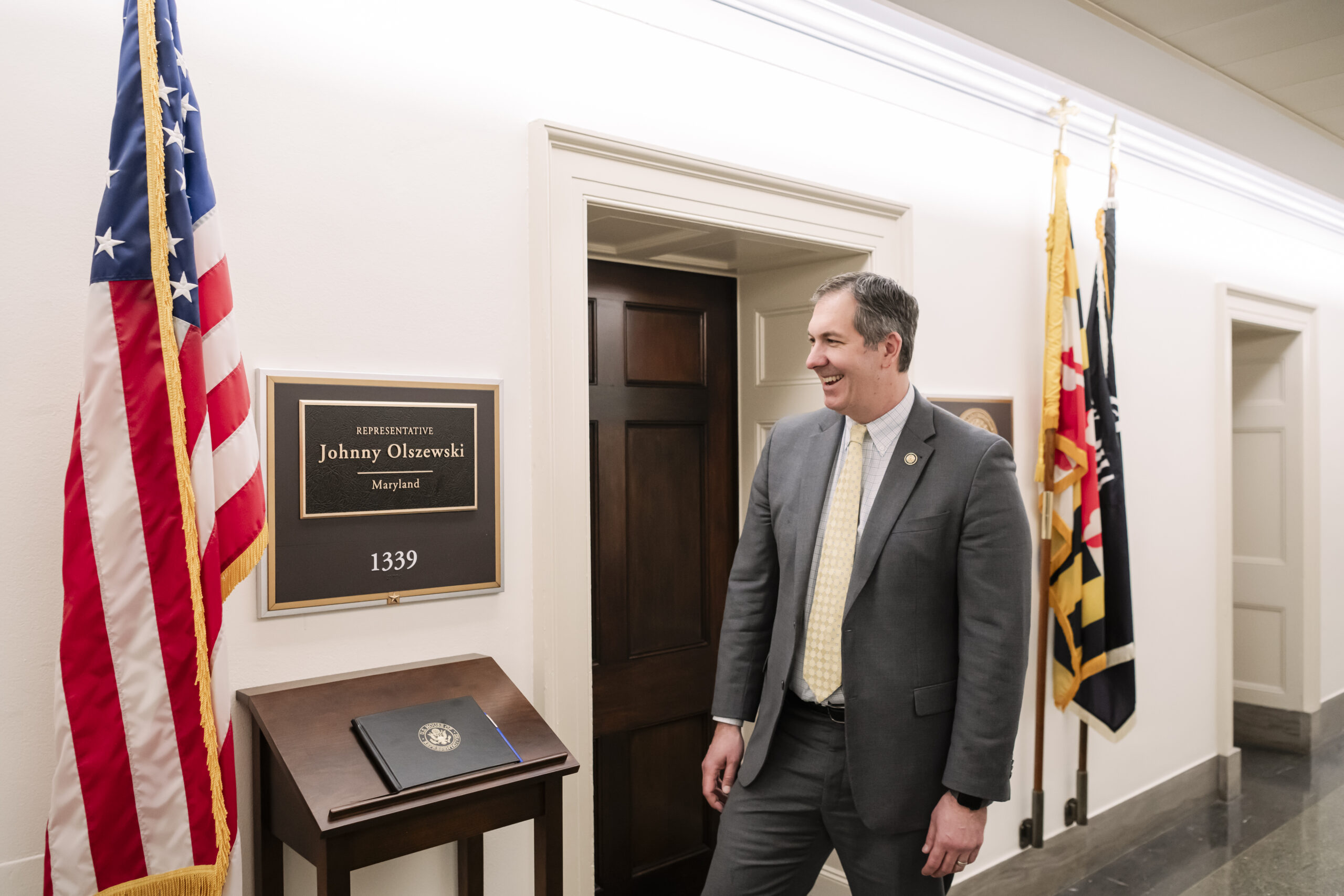When Johnny Olszewski walks the halls of the Longworth House Office Building across the street from the Capitol dome, he stands head and shoulders above most of his peers. And while his height may be the first thing that sets him apart from the flood of new legislators in Washington, D.C., his consistent dedication to his homebase constituents—including much of Baltimore County where he was born, raised, and eventually earned a Ph.D. in his backyard at UMBC—has helped him arrive as a first-term representative in Congress with a solid reputation preceding him.
“All around the Capitol, people are learning how to say ‘Johnny O, Johnny O.’ They were saying it the first day,” shares Olszewski’s fellow congressman Kweisi Mfume, who represents Maryland’s 7th district, which includes UMBC.
To say that public service in the Baltimore area has defined this Retriever’s career would be a bit of an understatement. Prior to getting sworn into the U.S. House of Representatives in early January 2025, Olszewski, Ph.D. ’17, public policy, served as the Baltimore County executive, leading the 73rd most populous county in the country. He came to that role with two terms in the Maryland House of Delegates. When he originally won the delegate position, Olszewski was a 24-year-old social studies and special education public school teacher.
How does a first-generation college student from Dundalk work his way up to the District? “There’s a saying in D.C.,” explains Olszewski, “that you’re generally one of two types of politicians—you’re a show horse or you’re a work horse. And my grounding at UMBC and elsewhere has me really wanting to come and do the right work and find solutions for some really important, but also very challenging and sometimes divisive, issues that are facing our country.”
From classroom to Congress
Many students daydream about an out-of-state school experience, but for Olszewski—seated in his congressional office with an extra-large painting of a crab with a can of Old Bay across from him—staying local was the goal.
“UMBC was a no-brainer,” says Olszewski, who points to his diploma hanging high on the wall, “first and foremost, because of the reputation of the institution. Secondly, the availability of and the reputation of the specific program—public policy. And then also, I do believe in taking advantage of it being a state school, and it’s in my county.”
With his personal experience of electoral politics and other hands-on practice as a Maryland delegate, the public policy professors eagerly welcomed Olszewski into the program. While originally Olszewski saw his Ph.D. as more of a personal project, he quickly realized how impactful his growth and connections gained on campus would be in governing.

Roy Meyers, professor emeritus, was Olszewski’s dissertation chair. “It was a great benefit to have him as a current legislator in the classroom,” says Meyers. “Other students learned from the real-world examples he provided, either confirming or improving on what I taught.”
Meyers notes that there’s a potential drawback for mid-career students with government experience—they might rely too much on that experience, and fail to pick up what the academic experience can provide: exposure to different theories, perspectives, and methods. “That was not the case with Johnny, quite the opposite,” says Meyers. “It was clear that he intended to use much of what he learned from all the courses in the program. An example is how Johnny emphasized transparency and communications with constituents on the Baltimore County budget, a big improvement from previous practice.”
“My grounding at UMBC and elsewhere has me really wanting to come and do the right work and find solutions for some really important, but also very challenging and sometimes divisive, issues that are facing our country.
Renee Whitby, M.P.P. ’15, one of Olszewski’s fellow students in a summer sociology course at UMBC, says that, “Johnny was smart, down to earth, and had a good sense of humor. We often have a preconceived notion about politicians, but he proved to be a regular person.” Whitby, who now works in Towson University’s College of Education, was so excited to cast her vote for her former classmate in his congressional run. “Johnny brings a wealth of knowledge and common sense that will benefit the constituents of District 2 in shaping federal legislation,” she says.
Meyers, who was occasionally tapped by Olszewski in his prior role to lead groups about spending affordability or process modernization, knows first hand that Olszewski is well-equipped to make the leap from county executive to congressman. “That he was elected by fellow Democratic freshmen to be their representative on the influential Steering and Policy Committee is a sign that he is already a respected member, and I expect that he will be visible,” says Meyers.

Olszewski now represents the majority of Baltimore County, Carroll County, and a northern sliver of Baltimore City—as well as global reach with his committee assignment to Foreign Affairs—and he’s ready to call on his academic background and history of legislative experience to lead on a larger scale on issues like affordable housing, gun safety, workforce development, and other areas he took on as county executive. The congressman has a word of advice for students and constituents alike: “Don’t wait your turn. I think if you have a burning passion to get involved, there are so many ways you can do it.”
Common sense to scale
Olszewski is not naive about the polarization of federal politics but he wants the chance to scale some common sense bipartisan change like he aimed for in Baltimore County.
“One of the things that I prided myself on as county executive was just how open, accessible, and transparent we were about what was going on, how we made decisions, and what was happening. And I expect very much to continue that approach here,” says Olszewski, sweeping his hands around his congressional office space. “We passed bipartisan police reform. We had Republicans and Democrats voting unanimously for budgets, which is just unheard of these days.”

Olszewski’s public policy dissertation at UMBC explored conditions under which lawmakers actually use evidence to drive policymaking as opposed to other considerations. What he discovered is that, “policymaking, unfortunately, isn’t just an academic exercise,” says Olszewski. “A lot of academics and researchers spend a lot of time coming up with really thoughtful research and understanding of the world…and there might be really compelling policy prescriptions that will move the needle on any number of issues. But there are folks across the aisle who, because of personal beliefs or political considerations, just can’t support that.”
“It’s still a little humbling and inspiring to know that a kid from Dundalk, who was the first in his family to go to college, is now part of a group that is responsible for leading our nation, but also still just being a kid from Dundalk,” says the freshman representative.
His commute and his title have changed, but Olszewski plans to still bring the best of himself, all 6 feet 6 inches to the job at hand. “Compromise is possible without compromising values,” he says. On this day in January, where the sidewalks are lined with stacks of disassembled but not yet removed barricades following the inauguration, he adds, “And that’s where it gets complicated. It might not be the pure, perfect answer, but I think that there are places where we can still find that common ground.”
Tags: CAHSS, Impact, OGRCA, Public Policy, Spring 2025

